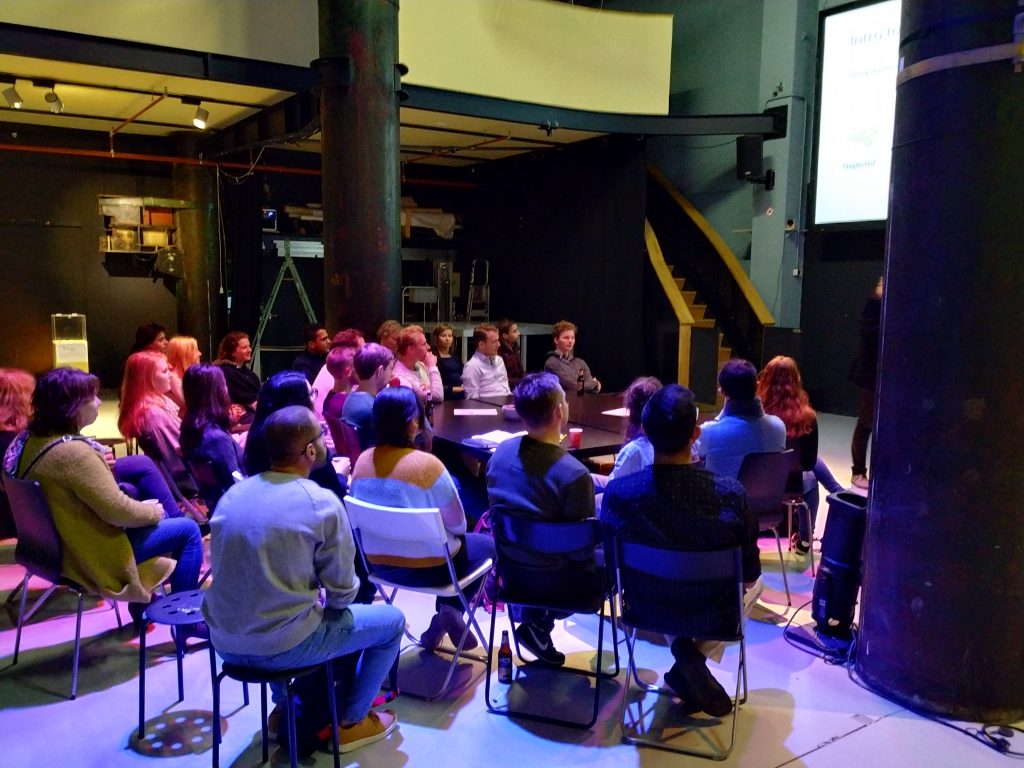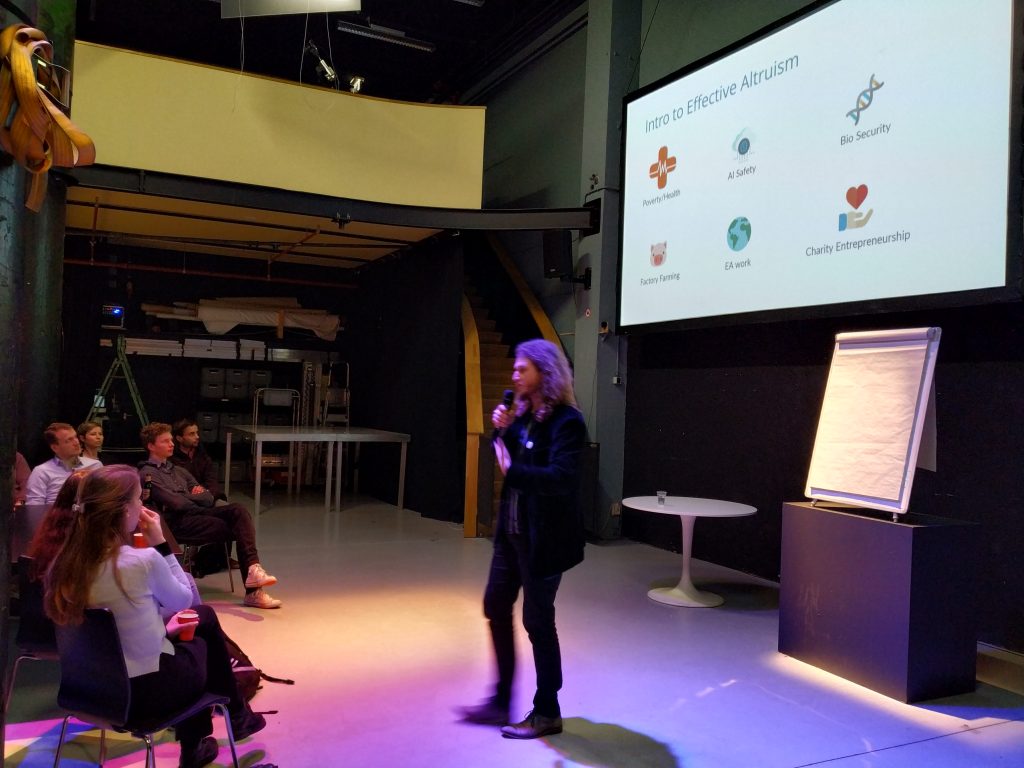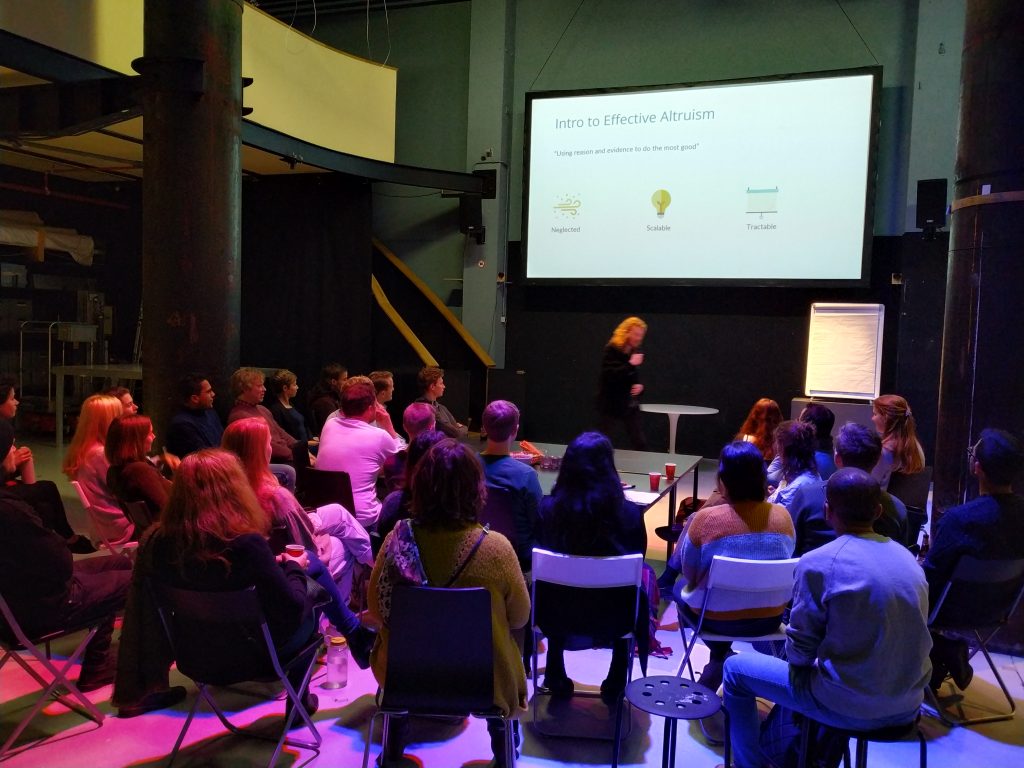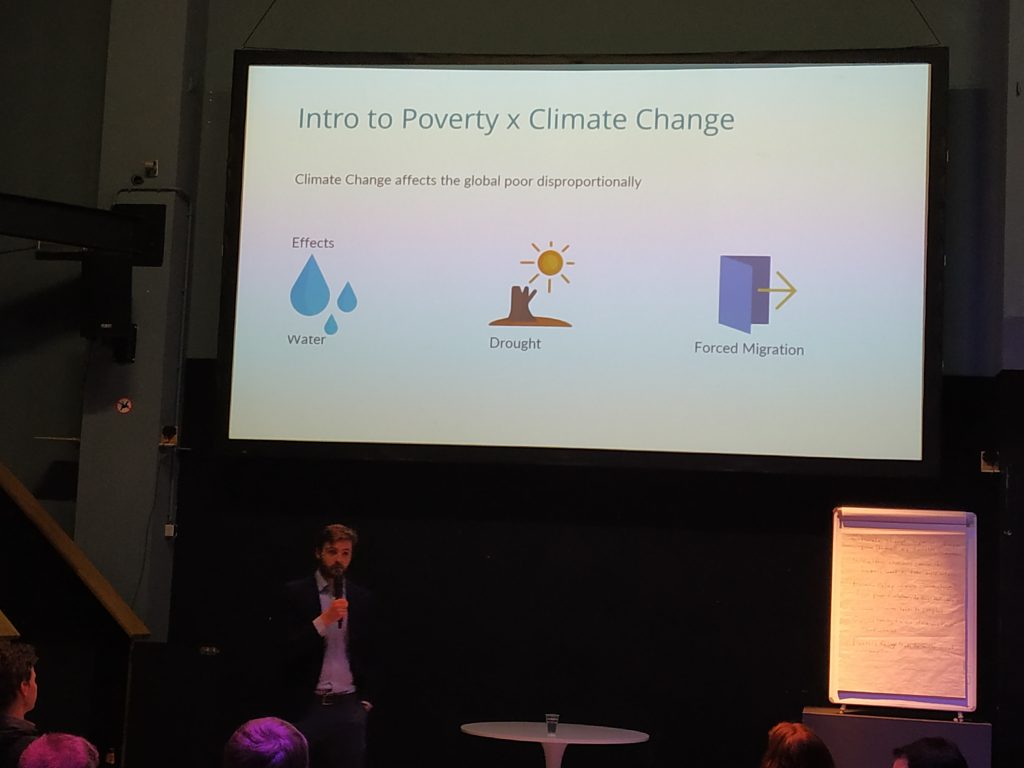Poverty & Climate Change
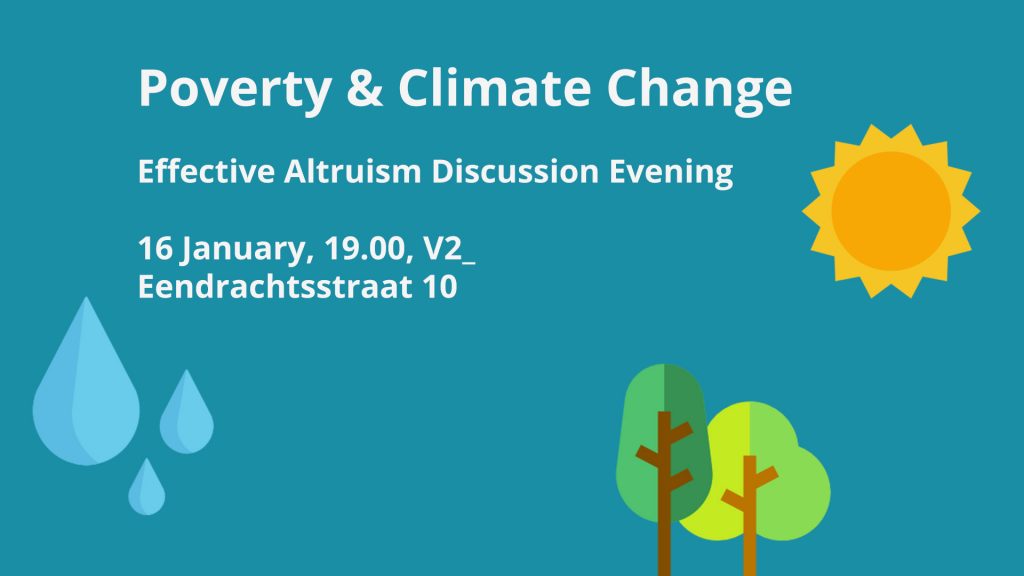
On Wednesday 16th of January 2019, the EA Rotterdam group had their sixth reading & discussion group. This is a deeper dive into some of the EA topics.
The topic for this event was Poverty & Climate Change.
During the evening we discussed how poverty and climate change are cause and effect, what causes are neglected, what we can do ourselves, and what consequences we might expect.
These were our starting questions:
- – What is the (future) impact of Climate Change on Poverty?
- – How will Climate Change affect the world’s poorest?
- – How can we measure this impact?
- – What can we do to prevent/mitigate this?
- – What are the most effective interventions to combat (the effect of) Climate Change?
- and more that we will discuss then
We (the organisers of EA Rotterdam) thank Alex from V2_ (our venue for the night) for hosting us.
If you want to visit an EA Rotterdam event, visit our Meetup page.
Poverty and Climate Change
We started the evening with a presentation by Joeri and Christiaan. In it they explained both Effective Altruism (EA) and how (through this framework) we look at climate change.
After that, we split the group into two and both groups worked on making a mindmap/overview of the questions asked above (and some more, download them). This is a summary of what we discussed:
Group 1
We have the raw materials for wealth growth. The problem lies in the distribution. We also focus too much on materials as opposed to other growth (e.g. art/civil society).
What we can even see is a “luxury minimalism”amongst our peer group (a counter to the materialist mindset of our time. What we tend to forget is the real cost of products.
We talked about the impact of poverty relief on climate change. For instance where people get access to more transportation options (bikes -> motorcycles -> cars), there is more and more pollution. People take a car when they could have also biked. India and China are places to look at both for the growing problem and possible (electric?) solutions.
Is it selfish/hypocritical to limit growth of people coming out of poverty by saying they shouldn’t pollute? It could be. And one thing to not forget is that the 1% richest have the most proportional pollution. That is the place (the West again) to look for the largest savings (at least right now).
A combination of interventions (policy level) and consumer responsibility could pave the way forward. Democracy (the best of the worst) was discussed as being the best way to do this.
Climate change has a huge effect on poverty. Many of the consequences will be the effects of the effects. People who will have drought or too much rain will have to move, and this will very likely lead to conflicts.
Poverty relief also leads to stabler societies, less (unwanted) pregnancies and through this way will possibly lead to less climate change.
In the end group 1 discussed the role of multinationals. They don’t pay the real costs of what they make and there is little accountability. Advocacy directed at them may have a significant (positive) impact. (e.g. just today Samsung announced that they will stop packaging their products in plastic in the near future).
Group 2
Corporate responsibility was a main topic at group 2. The Doughnut Economy (see more here) was mentioned as a framework to put this discussion in. Tax reform could be a very effective way of better paying for the costs of things we use. The group also stated that only a small number (100) of companies are responsible for a large part of the climate change effects, it’s a problem we can tackle!
We also need more education. There are still many myths about climate change (sorry Americans, y’all are a bunch of crazy people). How can we make the effects visible (climate vs weather) and how can we effect behaviour change?
A lot of thinking is short-term. Many people don’t (ever) think about the long-term effects of their actions. Through tax reform and collective (vs individual) thinking we could have a positive impact. But we need small steps (in the right direction) to get there.
Conclusion
Climate change and poverty are both large topics that require more than an evening to discuss and flesh out. Below are the resources we consulted and shared with the participants. Please go and read/watch some to get a better understanding of the topics.
Climate change is having a direct negative effect on the poorest of the world. We should hurry and be open to new solutions in fighting the causes and effects of climate change. Limiting the (economic) growth of people coming out of poverty is not the most efficient solution. Taxing and changing the way the richest consume (including the ‘average’ person in the West) should be a priority. You can make changes yourself, as do multinationals and governments.
At last I will leave you with a reading tip: Let My People Go Surfing. About how one company (Patagonia) is trying their utmost best to do the right thing!
Resources
Starting/Preparation reading/watching:
– https://www.youtube.com/watch?v=G4H1N_yXBiA (Climate Change in 3 minutes)
– https://www.youtube.com/watch?v=OWXoRSIxyIU (Veritasium on Climate Change in 7 minutes)
– https://www.ipcc.ch/ (Climate Change model)
– https://www.indiawaterportal.org/articles/global-warming-impacts-india-be-huge (impact on India)
– https://www.theguardian.com/environment/2017/jul/31/suicides-of-nearly-60000-indian-farmers-linked-to-climate-change-study-claims (impact on suicide in India)
– https://www.sciencedirect.com/science/article/pii/S2210600615300277
s_cid=mm6525a1_w?ftag=MSFd61514f (impact on suicide in India)
– https://models.pbl.nl/image/index.php/IMAGE_framework (Global Development model)
– https://ec.europa.eu/jrc/en/research-topic/desertification-and-drought(Drought)
Some more links for the interested:
– https://www.pbl.nl/en/publications/trade-offs-and-synergies-between-universal-electricity-access-and-climate-change-mitigation-in-sub-saharan-africa
– https://www.pbl.nl/en/publications/people-and-the-earth
– https://www.pbl.nl/en/publications/2012/roads-from-rio20
– https://www.unenvironment.org/resources/global-environment-outlook-5
– https://www.ipcc.ch/sr15/chapter/chapter-5/
– http://hdr.undp.org/en/content/climate-change-and-human-development
Download the full resource list
